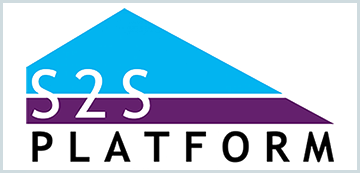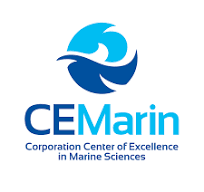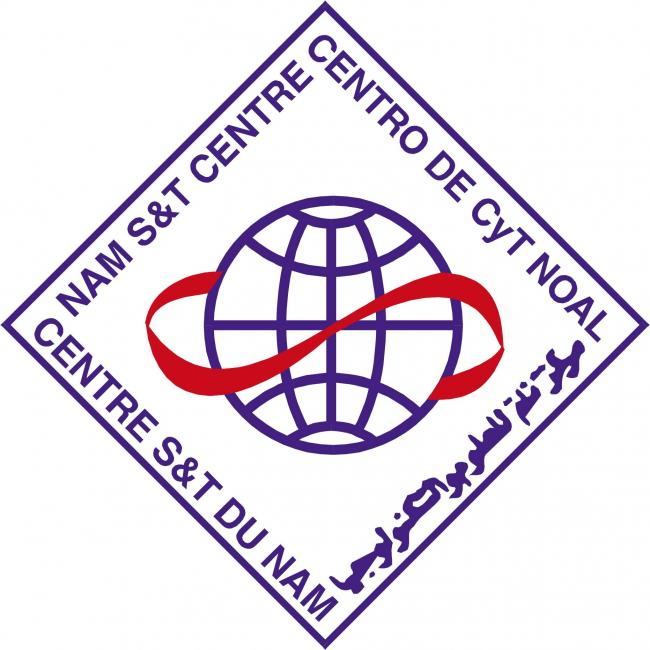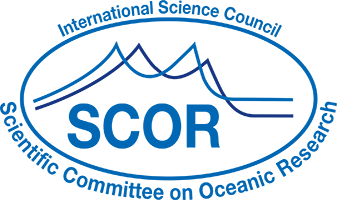The Leibniz Centre for Tropical Marine Research (ZMT) is active in various international organisations dedicated to promoting cooperation in marine-related research, education and conservation programs. They support governments in their efforts to achieve sustainable coastal management through knowledge and technology transfer as well as the coordination of international training programs.
The participation of ZMT employees in international organizations contributes to the integration of German marine tropical ecology research within international programmes and the development of common strategies. In the face of global change, we define internationalisation as a cooperation task, which must be handled on equal terms with our partners.
The cooperation with partners in emerging and developing countries enables ZMT to find a future-oriented and shaping position in the North-South Dialogue.
ZMT is involved in the following international organisations and networks:
Action Platform for Source-to-Sea Management
Since 2024 the ZMT is a partner of the Action Platform for Source-to-Sea Management (S2S Platform). It is a global multi-stakeholder network hosted by the International Union for Conservation of Nature (IUCN). The former host was the Stockholm International Water Institute (SIWI). The S2S platform includes more than 40 stakeholders working towards holistic management across the land-freshwater-coasts and ocean continuum. It is a network at the interface between science and society that wants to increase awareness of and bridge the gap between the Sustainable Development Goals 6 "Clean water and sanitation" and 14 "Life below water".
CEMarin
In 2024 ZMT became a member of the Corporation Center of Excellence in Marine Sciences (CEMarin) in Colombia and can now intensify and benefit from CEMarin’s affiliations and connections with scientists from its member universities in Colombia and Germany. CEMarin is an international non-profit academic consortium promoted and financed by the German Academic Exchange Service (DAAD) of the German Federal Ministry of Foreign Affairs. Established in 2009, it became a DAAD Center of Excellence for research and teaching in 2015, focused on high-level interdisciplinary research and academic training through transnational cooperation with six Colombian and German universities, among other national and international partners.
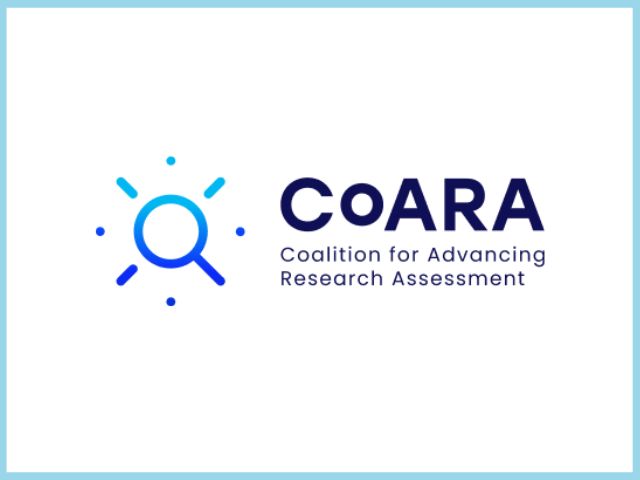
Coalition for Advancing Research Assessment (COARA)
The "Coalition for Advancing Research Assessment", founded in 2022, aims to improve research evaluation processes, rethink traditional evaluation methods and promote modern approaches. In this way, cooperation between disciplines and with societal groups is to be evaluated, which ultimately improves research results and their societal impact. In doing so, CoARA actively involves scientists. 527 international scientific institutions and research alliances have joined the coalition as member organisations by signing the CoARA agreement (as of July 2023). The Leibniz Association is also one of the first members. ZMT has successfully assembled a consortium of sixteen partner institutions from ten countries to address the assessment of transformative scientific work. CoARA has just confirmed the first international teams, including the working group "Towards Transformations: Transdisciplinarity, applied/practice-based research, and impacts", in which ZMT, the Leibniz Institute for Ecological Urban and Regional Development (IÖR) and the German Association of University Teachers will focus together with international partners on the evaluation of transdisciplinarity in terms of its importance for solving pressing societal problems.
POGO (Partnership for Observation of the Global Ocean)
ZMT has been a member of the POGO (Partnership for Observation of the Global Ocean) network since 2018. POGO brings together leading heads of major marine research institutions from 20 member states. The consortium is represented on every continent. In addition to ZMT, the Alfred Wegener Institute (AWI) and the GEOMAR Helmholtz Centre for Marine Research Kiel are POGO members in Germany.
Centre for Science and Technology of the Non-aligned Movement and Developing Nations (NAM S&T Centre)
In the scope of a cooperation with the NAM S&T Centre in New Delhi, the ZMT offers within its projects training to excellent young scientists from developing countries in the tropics. (siehe auch NAM-Fellowships).
EuroMarine Network
The European Marine Science Network, launched in 2014, was designed by the EuroMarine preparatory project (2011-13; funded under the Seventh European Framework Programme) as a bottom-up organisation and meant to be a voice for the European marine scientific community. The primary goals of EuroMarine are to support the identification and initial development of important emerging scientific topics or issues and associated methodologies in marine sciences, as well as to foster new services relevant to the marine scientific community.
Future Earth Coasts
The goal of Future Earth Coasts is to support sustainability and adaptation to global change in the coastal zone. It does so by linking natural and social sciences with knowledge of coastal communities at global, regional, and local scales. Future Earth Coasts operates as an international research project and global network of experts investigating the drivers and social-environmental impacts of global change in coastal zones. Future Earth Coasts is administered and supported by a distributed International Project Office. The head office and its director were based at the ZMT from 2019 - 2021.
International Ocean Institute (IOI)
Since 2002, the ZMT has housed the German branch of the International Ocean Institute (IOI), which was founded in 1972 by Elisabeth Mann-Borgese as a non-profit, international non-governmental organisation. It consists of a network of centres distributed in 25 countries around the world, and is managed by a central office in Malta. The IOI is dedicated to the peaceful and sustainable use of oceans, and is actively involved in the education and consultation of several topics, such as maritime law, coastal and resource management, pollution, and marine trafficking and transport. The IOI Germany is currently headed by Rebecca Lahl from ZMT.
Intergovernmental Oceanographic Commision (IOC) - UNESCO
The ZMT maintains a strong connection to the IOC, especially as a representative in the IOC Sub-Commission for the Western Pacific, WESTPAC. It participates in the development of education strategies and the organisation of international workshops.
MARE - Centre for Maritime Research
MARE was established in 2000 by the University of Amsterdam and SISWO (Netherland’s Institute for Social Science Research). MARE now has four institutional partners, located in three countries of Europe - one of them is ZMT. The MARE staff consists of social scientists involved with topics of coast and sea, who contribute to one or more of MARE’s products (Conference, Journal MAST, Publication series).
SCOR / SCOPE - ICSU
The ZMT cooperates with the organisations "Scientific Committee on Problems of the Environment" (SCOPE) und "Scientific Committee on Oceanic Research" (SCOR) of the International Council for Science (ICSU). Within SCOPE, the ZMT acts as chairman of the German National Committee, while within SCOR, it acts as the chairman of the newly established "Committee for Capacity Building". Furthermore, under the framework of these organizations, the ZMT takes part in joint research projects.
West Indian Ocean Governance & Exchange Network (WIOGEN)
A new network on regional ocean governance, connecting the partner countries Kenya, Madagascar, Seychelles, Mozambique, South Africa, Tanzania, was launched in June 2019. WIOGEN is a scientific networking platform, funded by the "MeerWissen Initiative” (Federal Ministry for Economic Cooperation and Development, BMZ) with an integrative vision of social learning approaches that fosters regional ocean governance in the West Indian Ocean Region. The network comprises a transdisciplinary science network of academic, policy-related, private and civil society partner institutions over a preliminary phase of two years. It complements other regional marine science networks by focusing explicitly on integrative ocean and coastal governance, thus bringing together the social and marine sciences. WIOGEN strongly targets on the capacity development of early career ocean governance researchers, policymakers, tertiary educators, and development practitioners. The platform is structured around three selected ocean governance themes: (a) nutritional security, sustainable fisheries, aquaculture and livelihoods; (b) marine spatial planning and coastal management; (c) biodiversity conservation, pollution and habitat loss.
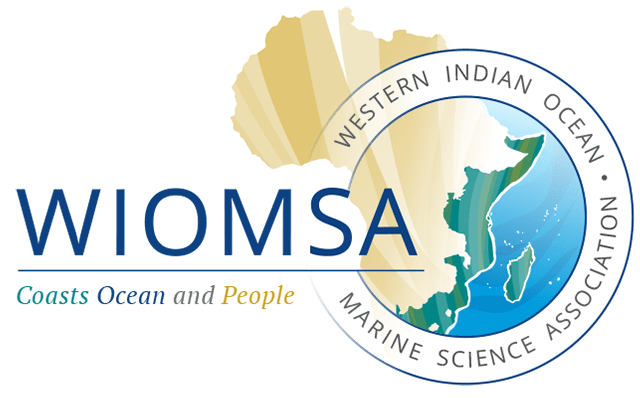
Western Indian Ocean Marine Science Association (WIOMSA)
The Western Indian Ocean Marine Science Association (WIOMSA) was established as a regional, non-profit, membership organization in 1993 and registered in Zanzibar, Tanzania in 1994 as a non-governmental organization. The organization is dedicated to promoting the educational, scientific and technological development of all aspects of marine sciences throughout the Western Indian Ocean (WIO) region (consisting of 10 countries: Somalia, Kenya, Tanzania, Mozambique, South Africa, Comoros, Madagascar, Seychelles, Mauritius, Réunion (France)), with a view toward sustaining the use and conservation of its marine resources. WIOMSA has a particular interest in linking the knowledge that emerges from research to the management and governance issues that affect marine and coastal ecosystems in the region.





